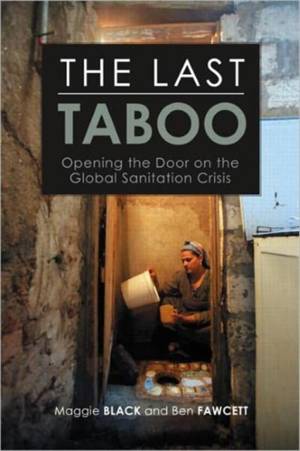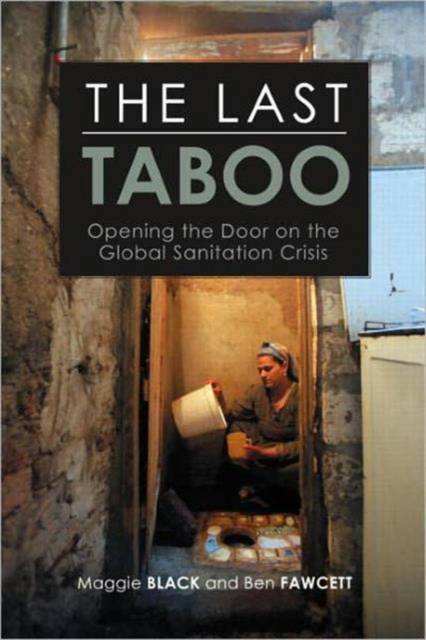
- Afhalen na 1 uur in een winkel met voorraad
- Gratis thuislevering in België vanaf € 30
- Ruim aanbod met 7 miljoen producten
- Afhalen na 1 uur in een winkel met voorraad
- Gratis thuislevering in België vanaf € 30
- Ruim aanbod met 7 miljoen producten
The Last Taboo
Opening the Door on the Global Sanitation Crisis
Maggie Black, Ben FawcettOmschrijving
Except in schoolboy jokes, the subject of human waste is rarely aired. We talk aboutwater-related diseases when most are sanitation-related - in short, we don't mention the shit.
A century and a half ago, a long, hot summer reduced the Thames flowing past the UK Houses of Parliament to aGreat Stink thereby inducing MPs to legislate sanitary reform. Today, another sanitary reformation is needed, one that manages to spread cheaper and simpler systems to people everywhere.
In the byways of the developing world, much is quietly happening on the excretory frontier. In 2008, the International Year of Sanitation, the authors bring this awkward subject to a wider audience than the world of international filth usually commands. They seek the elimination of theGreat Distaste so that people without political clout or economic muscle can claim their right to a dignified and hygienic place togo.
Published with UNICEF
Specificaties
Betrokkenen
- Auteur(s):
- Uitgeverij:
Inhoud
- Aantal bladzijden:
- 272
- Taal:
- Engels
Eigenschappen
- Productcode (EAN):
- 9781844075447
- Verschijningsdatum:
- 27/02/2008
- Uitvoering:
- Paperback
- Formaat:
- Trade paperback (VS)
- Afmetingen:
- 159 mm x 235 mm
- Gewicht:
- 417 g

Alleen bij Standaard Boekhandel
Beoordelingen
We publiceren alleen reviews die voldoen aan de voorwaarden voor reviews. Bekijk onze voorwaarden voor reviews.











